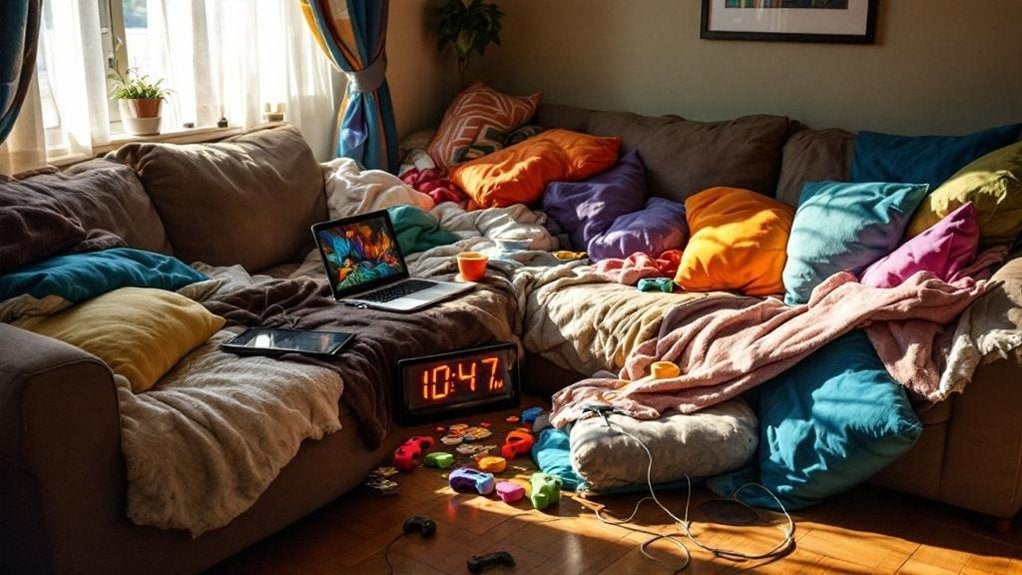Why I’m Letting My Kids Binge Screens, Sleep Late, and Be ‘Lazy’ All Summer
Summer screen time battles are exhausting. Kids already average over 5 hours daily, teens push past 7. Parents surrendering to screens, late mornings, and “lazy” summers aren’t giving up—they’re being realistic. Fighting constant device use is draining, especially when pandemic habits stuck around. Some screen time isn’t terrible anyway, depending on content. The real story gets more complicated, with surprising research about when screens actually help versus harm.

When school lets out for summer, kids’ screen time shoots through the roof. The numbers don’t lie. Children between 8-12 now average 5 hours and 33 minutes glued to screens daily during summer break. That’s up from 4 hours and 36 minutes back in 2015. Teenagers? They’re pushing past 7 hours and 22 minutes every single day.
The pandemic made everything worse. Teen screen time exploded by nearly two hours between 2015 and 2021, hitting a mind-bending 8 hours and 39 minutes at COVID’s peak. Lockdowns meant 84 extra minutes of daily screen time for kids—a 52% jump. For the 12-18 crowd, that meant 110 additional minutes per day on phones and computers. Virtual school was part of it, sure. But most of that increase? Pure entertainment. Girls now rack up 5.3 hours daily on social media alone, while boys average 4.4 hours.
Here’s where it gets ugly. High screen use links directly to depression, anxiety, and behavioral problems, according to a 2024 JAMA Pediatrics study. The CDC warns that all this sitting around contributes to childhood obesity. Sleep‘s taking a hit too. Over half of Wisconsin high schoolers admit to using screens past midnight. One hour of bedtime screen exposure? That’s 59% higher insomnia risk and 24 fewer minutes of sleep. Like natural humectants, screens can be addictive, drawing kids in and keeping them hooked for hours.
For the little ones, it’s even scarier. Kids under 2 watching more than two hours daily face double the risk of speech delays. Physical problems pile up too—bad posture, aches, pains. The works.
But some researchers pump the brakes on total panic. They argue summer screen time isn’t automatically harmful—it depends what kids are watching and how they’re engaging. Educational content? Social connection? Maybe not so bad. Parents calling their kids “lazy” for binge-watching might be missing the bigger picture.
The truth is messier than anyone wants to admit. Summer screen time replaces school, recess, playground hours. It’s often unsupervised, purely recreational. About 20% of kids between 8-12 report over 8 hours of entertainment screen time daily. That’s basically a full-time job of staring at pixels. Adults aren’t immune either—every hour of TV in your 20s boosts heart disease risk by 26%, according to a 2024 European Journal of Preventive Cardiology study.
The screens aren’t going anywhere. Neither are the concerns.






